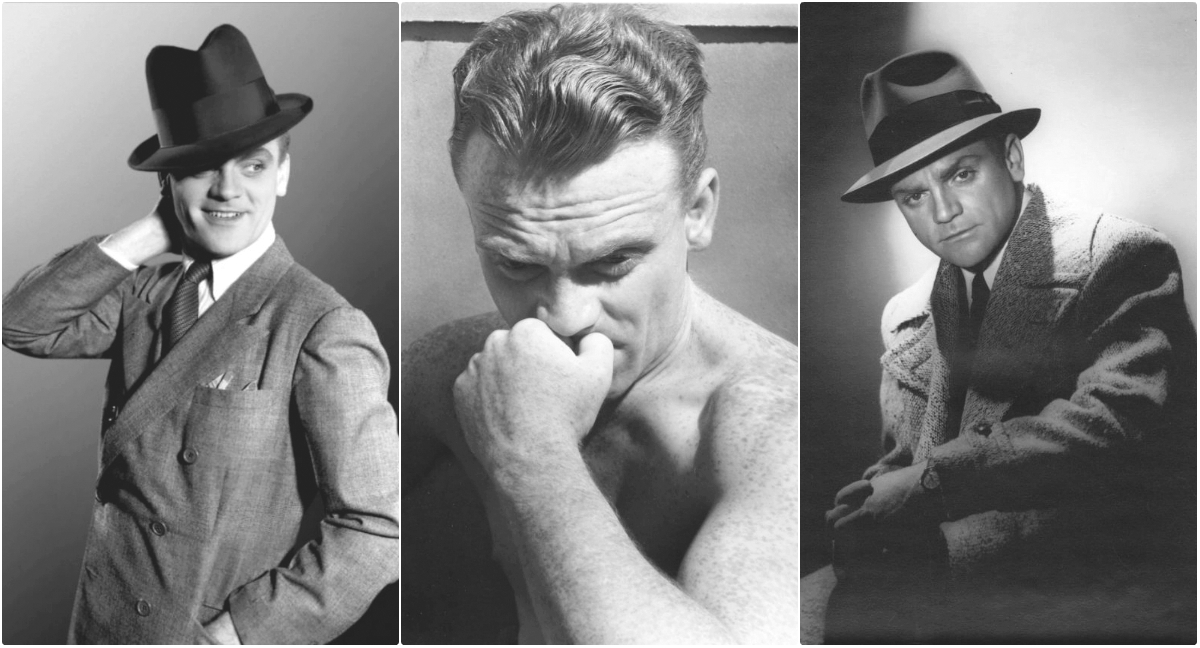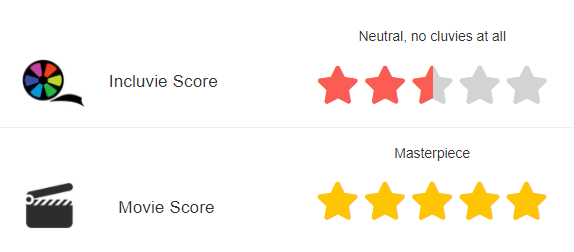Trans Representation Through Disney’s 'Mulan'
Mulan had to struggle to feel like herself and see herself properly. Some of us have to strive to have our reflection mimic what’s inside. We have to crawl. We have to fight.


Footlight Parade is an American pre-Code musical film released in 1933 starring James Cagney, Joan Blondell, Ruby Keeler, and Dick Powell. It was directed by Lloyd Bacon and written by Manuel Seff and James Seymour and features stunning musical numbers by the amazing Busby Burkley.
The story centers on Chester Kent (Cagney) and his secretary Nan Prescott (Blondell) in a rapidly-failing industry of creating “prologues”, which are short stage productions that prefix a movie and are basically an effort to keep live shows breathing when cinema is all anybody cares about.
Staying relevant in a quickly evolving media atmosphere is made worse when an insider begins stealing their ideas and selling them to rival companies.
It’s a stellar production with outstanding musical numbers and features the knock-out pairing of Cagney and Blondell, who also teamed up in Sinner’s Holiday (1930), Blonde Crazy (1931), The Crowd Roars (1932), and more.
Footlight Parade is exciting, racy, and funny. Although its Cluvie rating had to be bumped down because of the unfortunate portrayal of yellowface in the last scene of the film.

Chester and Nan’s relationship is purely professional. Except for the moments when they act like the closest of friends.
She’s a partner and confidant – not a sex object. She isn’t eyed-up, flirted with, or even playfully teased in a sexual way. Nan and Chester have late nights together brainstorming stage ideas where they’re up until the sun rises, slurping coffee and half-asleep…and nothing amiss happens.
Chester respects all of Nan’s thoughts, ideas, and suggestions, often going to her when he’s hopelessly out of his mind. In an amazing show of early feminism, he treats her like a person and doesn’t show a hint of “Me, Too”.
And it isn’t like Chester isn’t interested in women. He isn’t portrayed as a character that only cares about his work and doesn’t have time for girls. Quite the opposite, as he spends the film following Nan’s old friend around like a drunk puppy dog in love.
But he doesn’t see Nan as a “skirt”. She’s a loyal, smart, friend.
It isn’t just the way she’s treated by Chester, either. It’s the way her character is treated by the film itself.
The underlying plot is the duo of bigwigs above Kent that are siphoning money off his shows illegally. They’re content to see a hardworking, tireless crew underpaid and stressed so they can line their pockets a little more.
But it’s Nan that figures it out. And it’s Nan who confronts them about it.

Through her confrontation, she’s able to find out the truth and get the money back from the fraudsters for her and Kent’s production company.
Having a woman play the most pivotal role in uncovering the truth using clever, quick wits is outstanding early feminism in Hollywood. She doesn’t use sex. She doesn’t use her body, her looks, or seduction.
Nan is witty, intelligent, and gutsy.
Yes, I’ll admit it: Nan’s ultimate goal is still to marry Chester Kent.
Though to her credit, so is mine.

But, seriously.
We have to remember the time this came out. Her character was a bold portrayal of a woman for 1933. They certainly didn’t have the standards for representation that we do today.
We can criticize depictions from old media, but they weren’t simply “good for their time”. They were fighting and struggling in a world we can’t imagine.
Certain characters we may scoff at in modern times, but they were the pioneers of inclusivity. Our forefathers and foremothers of early feminism, LGBT visibility, and PoC rights. They did whatever they were able to.
Can you say that the “amazing progression” we have now won’t be seen as backward in 90 years? I honestly hope it will be.
It’s a great thing that progress marches on…but we can’t forget our roots. We can’t forget the people who got away with whatever they could. People like Katherine Hepburn and Mae West. People like Hattie McDaniel, who although had to play a number of highly insensitive roles, was an amazing actress and the first African American to win an Academy Award.
Don’t think that these tiny bits of representation went unnoticed. Little drops of representation and inclusivity were appreciated by marginalized communities.
An infamous racially-insensitive example of old media is Charlie Chan. But the Chinese celebrated the white man, Warner Oland, who played him. Because even though to us it’s shocking, offensive yellowface – to them it was the first positive Chinese character in an American film. Not a villain. Not evil.
I can personally attest to this, as Jack McFarland from the 1998 sitcom Will & Grace is considered a very dated and stereotyped portrayal of a gay man from a modern standpoint. But for me (a lil’ six-year-old Jimmy watching sitcoms on the living room floor) he was a gay man on television.
A normal character. A main character.
What I’m saying is, keep an open mind about past representation and characters. What seems cringy or downright triggering for you could have inspired earlier generations of minorities.
Another little kid sitting on the floor in their pajamas.

Nan, although pining after a man through the runtime of the film, is a strong, intelligent, working woman who is treated with respect, solves problems, and is relied on as a hard worker. Many women saw her in the cinema and wished their boss respected them the same way…if they even had a career.
Early feminism isn’t just about women taking the lead, not needing a man, or wearing pants. It’s about struggling through opposition and representing your community in the best way you can.
For some more content featuring awesome women, check out James Cameron’s Aliens: A Classic Tale, Brimming With Female Empowerment and Social Resonance and Kill Bill Volume 2 Review: A Worthy Sequel With Hidden Depths.

Related lists created by the same author
Mulan had to struggle to feel like herself and see herself properly. Some of us have to strive to have our reflection mimic what’s inside. We have to crawl. We have to fight.